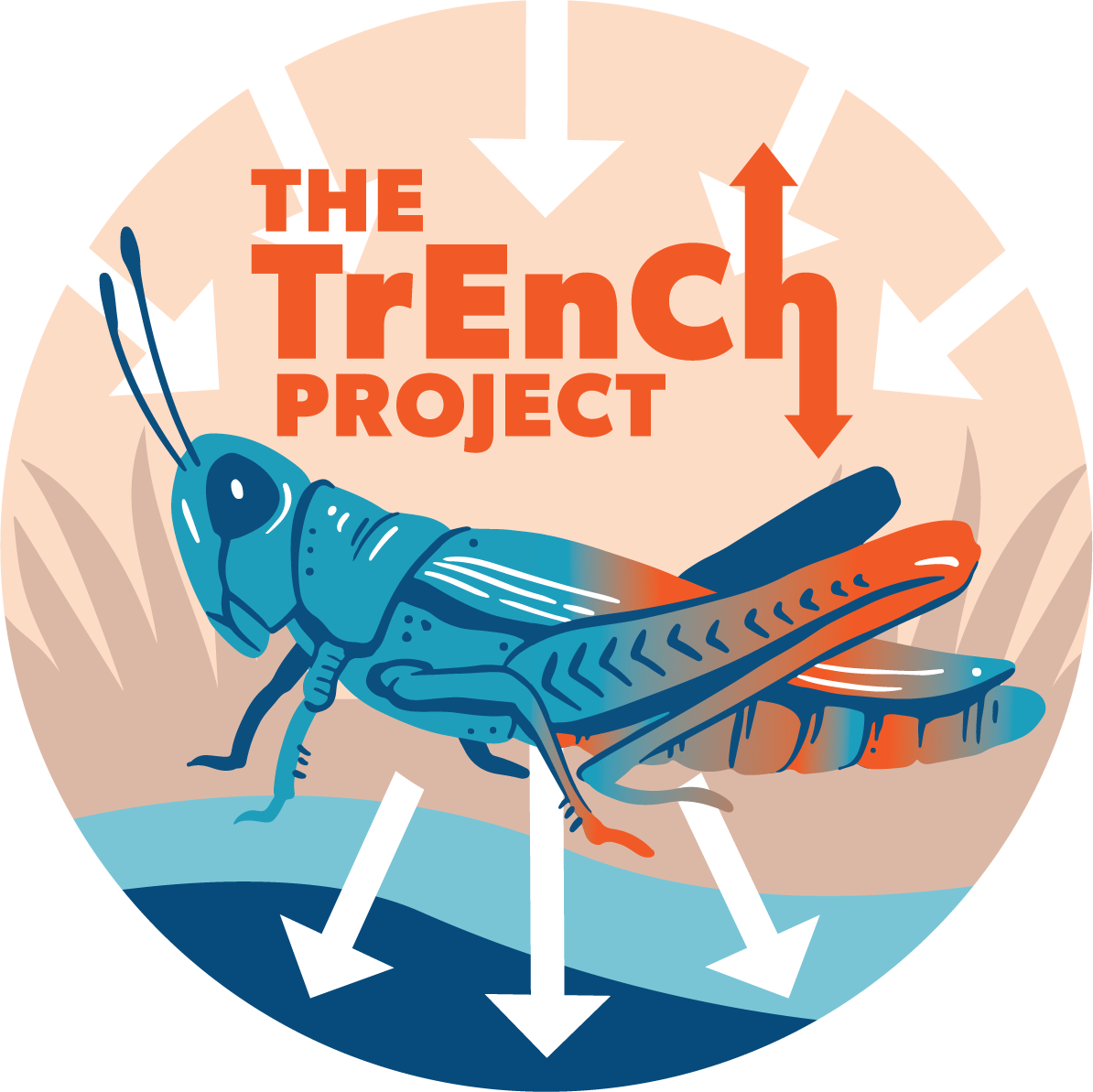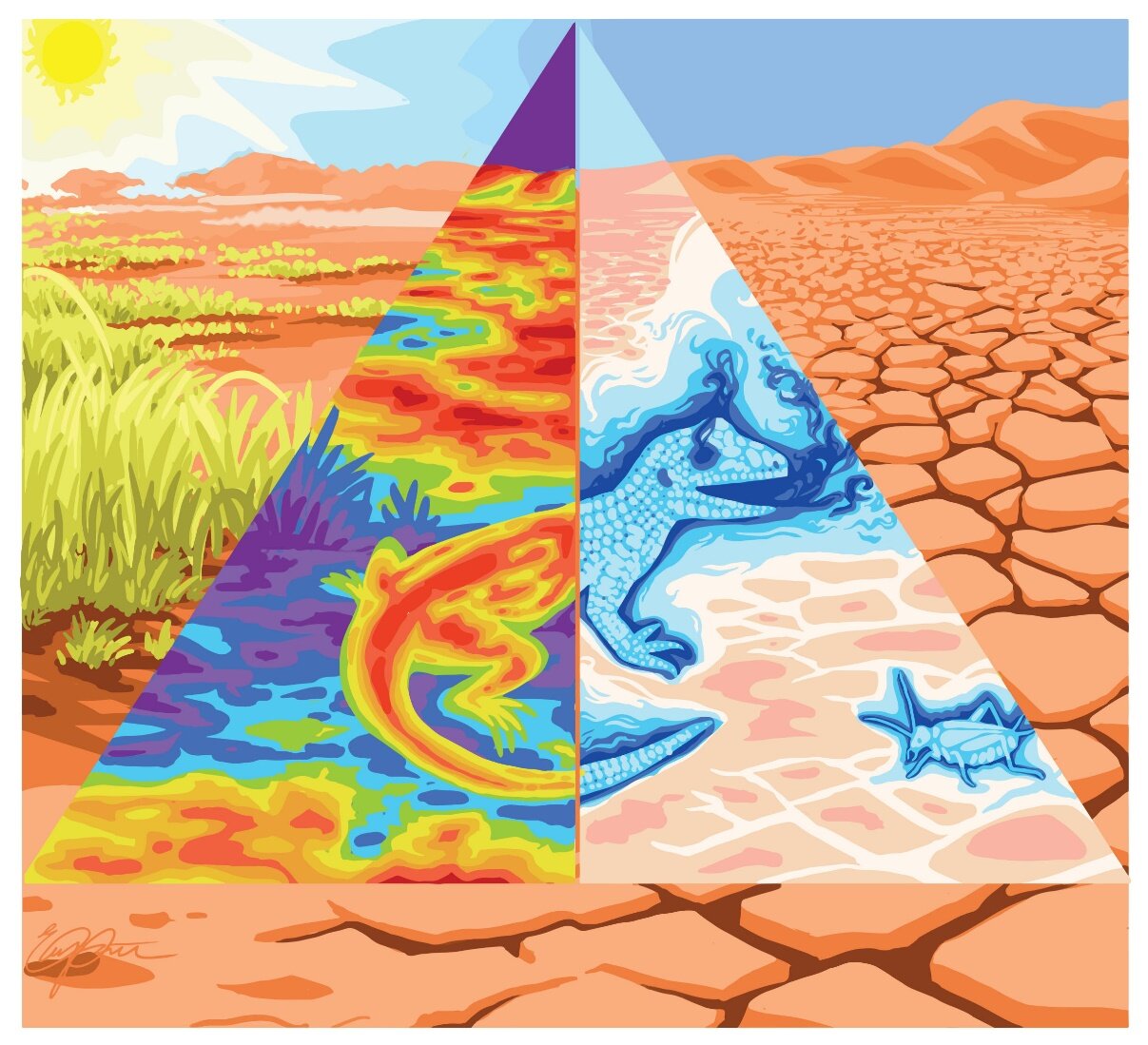TrEnCh: Tools for TRanslating ENvironmental CHange into organismal responses
Many efforts to forecast ecological responses to climate change are based on air temperatures at coarse spatial (degrees) and temporal (months) resolutions. But animals experience their environment at much finer resolution, responding to changes in environmental conditions at the scale of minutes and meters. We provide computational and visualization tools that translate air temperature into usable metrics, to improve ecological forecasting related to climate change.
Some of the tools that we offer extract fine-scale microclimate conditions from coarse-scale climate data. Others translate microclimate conditions (air and surface temperatures, radiation, wind, etc.) into animal body temperatures to calculate energy balances and thermal stress.
















